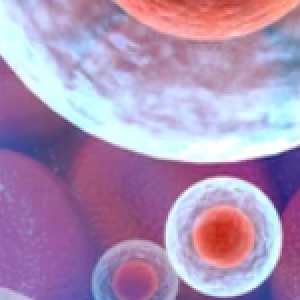CD BioSciences, a US-based CRO serving the global life science research community, has announced a series of new solutions on mitotic catastrophe, including Regulator Identification, Chemical Screening, Regulator Characterization, Cell Death Characterization, and Animal Model Generation.
Mitotic catastrophe is an irreversible arrest of the cell cycle that occurs when chromosomes undergo severe aberrations or the mitotic spindle becomes dysfunctional, resulting in the inability of the cell to complete mitosis. Depending on the balance between certain proteins in the cell, the mitotic catastrophe may result in a lethal process such as apoptosis, autophagic cell death, or necrosis, or it may trigger a cell survival program through the development of cellular senescence. Although this process is of great interest to researchers, the mechanisms by which mitotic catastrophe occurs remain poorly understood.
In addition, DNA damaging agents and radiation exposure, in combination with inhibitors of the DNA repair system, can stimulate mitotic catastrophe, thereby enhancing the therapeutic effect. Several inhibitors of molecular pathways that regulate cell cycle arrest and DNA repair have been actively investigated as mitotic catastrophe inducers for use in cancer therapy. Detection of mitotic catastrophe requires careful assessment of cellular morphological and biochemical parameters. Thus, despite the technical difficulties in studying the phenomenon of mitotic catastrophe, its role in the pathogenesis of various cancers makes it important for further research.
As a trusted CRO, CD Biosciences provides clients with comprehensive solutions for all aspects of life science research, with a special focus on mitotic catastrophe. These cell death research solutions include, but are not limited to, Regulator Identification (identifying gene regulators involved in a specific cell death signaling pathway), Regulator Characterization (studying the molecular function of a certain regulator in cell death signaling pathways), Cell Death Characterization (identifying and characterizing the types of cell death under certain conditions), Animal Model Generation (generating genetically engineered animal models for research use), and Chemical Screening (screening inhibitors or activators of specific types of cell death).
Cell death is important during embryonic development as it maintains the homeostasis of the organism and eliminates damaged cells. CD Biosciences is committed to meeting the needs of researchers and supporting the innovative discoveries of its customers by providing high quality reagents and comprehensive solutions.
If you’re interested in learning more about cell death solutions or other signaling pathways, please visit CD BioSciences at https://www.cd-biosciences.com/.
About CD BioSciences
CD BioSciences is a trusted research product supplier and CRO based in New York. With high-quality reagents and comprehensive services, CD BioSciences is a one-stop shop devoted to advancing signaling pathway studies for researchers. The company is committed to fulfilling all demands in the research of signaling pathways and provides high-quality reagents and comprehensive solutions to support innovative discoveries.
Mitotic catastrophe is an irreversible arrest of the cell cycle that occurs when chromosomes undergo severe aberrations or the mitotic spindle becomes dysfunctional, resulting in the inability of the cell to complete mitosis. Depending on the balance between certain proteins in the cell, the mitotic catastrophe may result in a lethal process such as apoptosis, autophagic cell death, or necrosis, or it may trigger a cell survival program through the development of cellular senescence. Although this process is of great interest to researchers, the mechanisms by which mitotic catastrophe occurs remain poorly understood.
In addition, DNA damaging agents and radiation exposure, in combination with inhibitors of the DNA repair system, can stimulate mitotic catastrophe, thereby enhancing the therapeutic effect. Several inhibitors of molecular pathways that regulate cell cycle arrest and DNA repair have been actively investigated as mitotic catastrophe inducers for use in cancer therapy. Detection of mitotic catastrophe requires careful assessment of cellular morphological and biochemical parameters. Thus, despite the technical difficulties in studying the phenomenon of mitotic catastrophe, its role in the pathogenesis of various cancers makes it important for further research.
As a trusted CRO, CD Biosciences provides clients with comprehensive solutions for all aspects of life science research, with a special focus on mitotic catastrophe. These cell death research solutions include, but are not limited to, Regulator Identification (identifying gene regulators involved in a specific cell death signaling pathway), Regulator Characterization (studying the molecular function of a certain regulator in cell death signaling pathways), Cell Death Characterization (identifying and characterizing the types of cell death under certain conditions), Animal Model Generation (generating genetically engineered animal models for research use), and Chemical Screening (screening inhibitors or activators of specific types of cell death).
Cell death is important during embryonic development as it maintains the homeostasis of the organism and eliminates damaged cells. CD Biosciences is committed to meeting the needs of researchers and supporting the innovative discoveries of its customers by providing high quality reagents and comprehensive solutions.
If you’re interested in learning more about cell death solutions or other signaling pathways, please visit CD BioSciences at https://www.cd-biosciences.com/.
About CD BioSciences
CD BioSciences is a trusted research product supplier and CRO based in New York. With high-quality reagents and comprehensive services, CD BioSciences is a one-stop shop devoted to advancing signaling pathway studies for researchers. The company is committed to fulfilling all demands in the research of signaling pathways and provides high-quality reagents and comprehensive solutions to support innovative discoveries.





